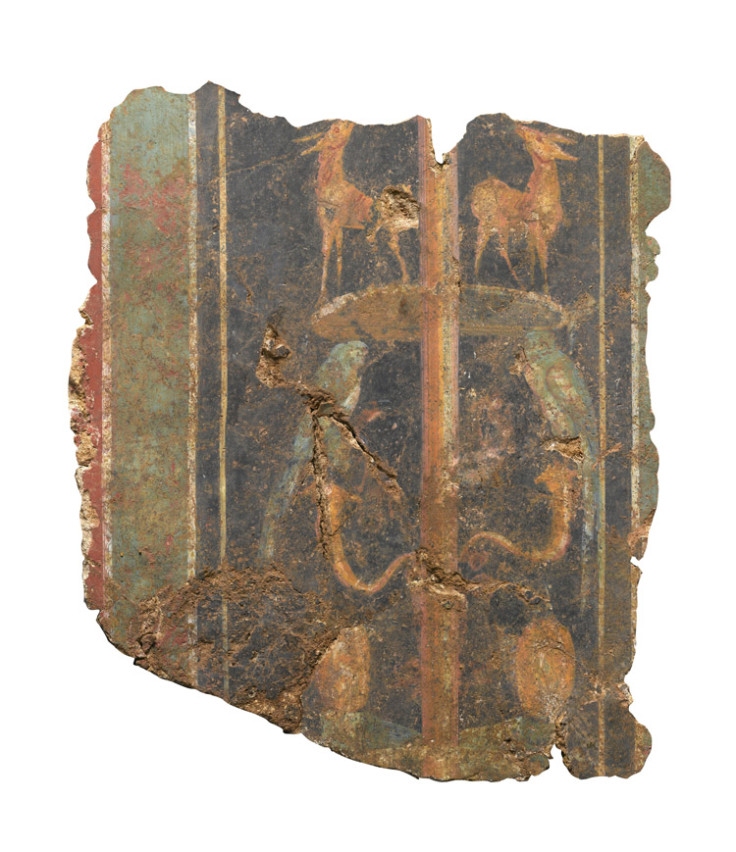Well-preserved 2,000-year-old Roman fresco excavated in London

Archaeologists at the Museum of London have found a wall painting dating back to the late 1st century AD. It is one of the earliest surviving frescos from Roman Britain, they said.
The fresco was discovered at 21 Lime Street during an excavation for a new office. Found face down, it measures 2.5m by 1.5m and is a millimetre-thin. Archaeologists said that the fresco was used for flattening the surface for the construction of the 2nd Forum Basilica, the main civic centre for the city and the largest Roman building ever built north of the Alps, in 100AD.
The remains of the wall painting were fragile, but incredibly preserved. "In advance of construction of the Forum the area was flattened. The painted wall was deliberately toppled and the Forum immediately built over it, incredibly preserving the fresco for nearly 2000 years," archaeologists said in a statement.
The intricate design on the wall painting and the material used to decorate it suggest that it adorned the reception area of a wealthy household. It features colourful panels and depicts a deer nibbling on plants, alongside birds, fruit and a vine woven around a candelabrum.
"The fresco was hand-painted by a skilled artist in natural earth pigments, except one area of red on the twisting vine stem which is picked out in cinnabar, an expensive mercuric sulphide pigment that had to be mined in Spain," researchers said.
"Our building materials specialists are excited to study the elaborate fresco further and learn more about the fashions and interiors favoured by London's first wealthy citizens," they added.
According to researchers, the design scheme on the newly-found fresco was not previously seen in Roman Britain. The closest example comes from a Roman villa in Cologne, Germany, they said.
"Our specialists continue to study the fresco and archaeological records from the dig and hope to build a picture of what the area looked like in the Roman period and how it developed over almost 2,000 years of London's history," they concluded.
© Copyright IBTimes 2025. All rights reserved.






















